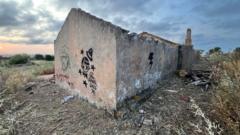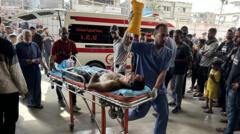Mali’s military government is investigating allegations made by a separatist rebel group that soldiers executed at least 24 civilians, including women and children, amidst an ongoing conflict that has deeply affected the nation.
Mali's Military Investigates Allegations of Civilian Executions Amid Ongoing Conflict

Mali's Military Investigates Allegations of Civilian Executions Amid Ongoing Conflict
Mali's military government has pledged to probe claims regarding the execution of civilians, highlighting the tension in the war-torn region.
The military government of Mali has announced an investigation into allegations claiming that soldiers executed at least 24 civilians in northern Mali. This assertion was made by the Azawad Liberation Front (FLA), a separatist Tuareg rebel alliance involved in armed conflict against the Malian government. According to the FLA, government forces and Wagner mercenaries intercepted two passenger vehicles on their way to Algeria from Gao, leading to the brutal killing of the individuals on board.
The army's chief, Gen Oumar Diarra, has dismissed the allegations as propaganda, stating that they were "relayed by terrorist networks" and describing them as "unfounded." Mali has been embroiled in conflict for years, battling separatist rebels and jihadist groups affiliated with Al-Qaeda and the Islamic State. In an effort to enhance security, the military, which has governed since seizing power in a series of coups in 2020 and 2021, hired Russian mercenaries from the paramilitary group Wagner.
Accusations of human rights violations against civilians have frequently emerged against both the Malian military and Russian forces, denials have consistently followed. Recently, Mali, along with Burkina Faso and Niger, withdrew from the Economic Community of West African States (ECOWAS), marking a significant shift in its regional alliances. This decision was taken after the bloc's insistence on returning to civilian governance. Additionally, Mali has cut ties with France, the former colonial power, after the withdrawal of French troops in 2022. The UN peacekeeping mission, consisting of 12,000 personnel, also exited the country at the junta's request in the following year.
The complex dynamics in Mali underscore the ongoing humanitarian crisis and the impact of international relations in a region struggling for stability.
For more details on Mali's situation, visit BBC Africa or follow them on various social media platforms.
The army's chief, Gen Oumar Diarra, has dismissed the allegations as propaganda, stating that they were "relayed by terrorist networks" and describing them as "unfounded." Mali has been embroiled in conflict for years, battling separatist rebels and jihadist groups affiliated with Al-Qaeda and the Islamic State. In an effort to enhance security, the military, which has governed since seizing power in a series of coups in 2020 and 2021, hired Russian mercenaries from the paramilitary group Wagner.
Accusations of human rights violations against civilians have frequently emerged against both the Malian military and Russian forces, denials have consistently followed. Recently, Mali, along with Burkina Faso and Niger, withdrew from the Economic Community of West African States (ECOWAS), marking a significant shift in its regional alliances. This decision was taken after the bloc's insistence on returning to civilian governance. Additionally, Mali has cut ties with France, the former colonial power, after the withdrawal of French troops in 2022. The UN peacekeeping mission, consisting of 12,000 personnel, also exited the country at the junta's request in the following year.
The complex dynamics in Mali underscore the ongoing humanitarian crisis and the impact of international relations in a region struggling for stability.
For more details on Mali's situation, visit BBC Africa or follow them on various social media platforms.




















